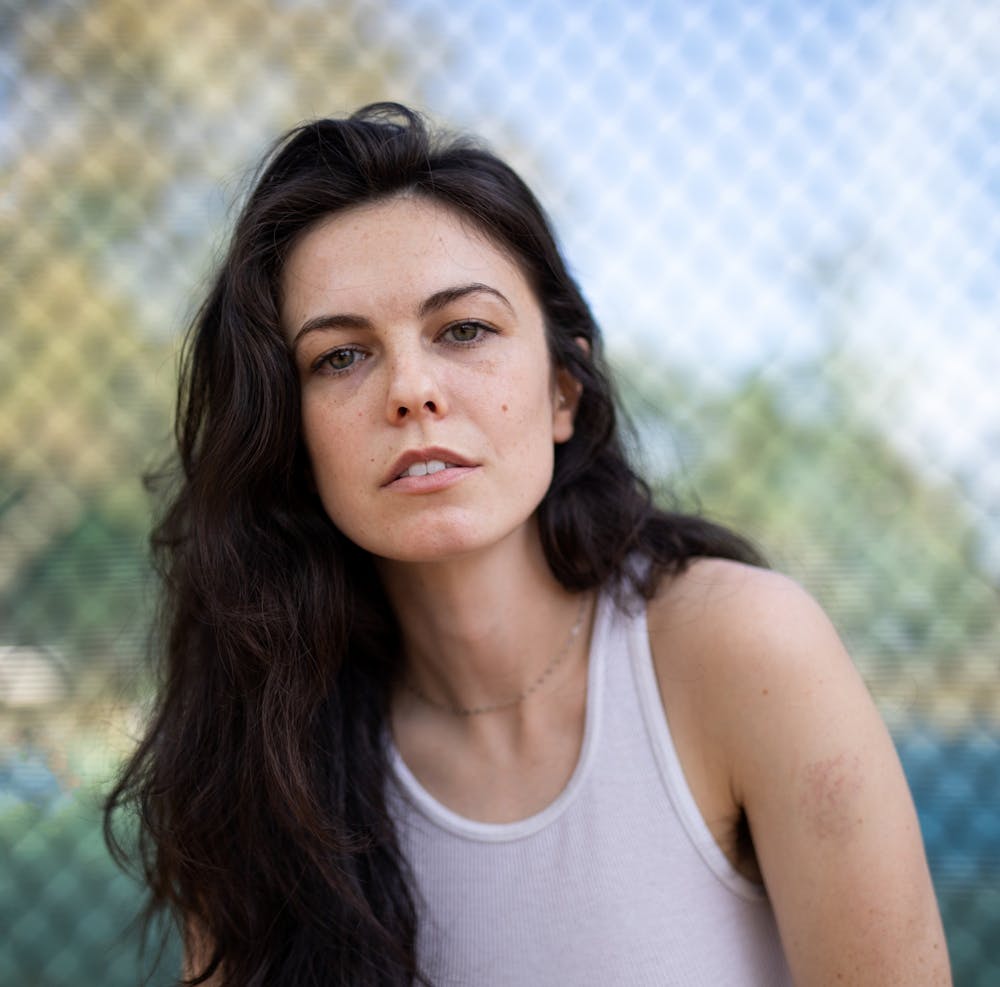On Wednesday evening, Maggie Millner ’13 — a poet, senior editor at The Yale Review and lecturer at Yale — read from her book “Couplets: A Love Story” and answered audience questions about form, ethics and her professional experiences since graduating from Brown.
The event was part of the Nonfiction@Brown series hosted by the English department and organized by Michael Stewart MA’07 and Elizabeth Rush, co-professors of ENGL 1190X: “Nonfiction Now.”
Stewart taught Millner in a creative nonfiction course a decade ago, and read from a piece she submitted to him during his introductory remarks. He spoke of the intentionality of her language, even as a student. When he first read “Couplets,” years after Millner’s graduation, he recognized “that same care” he had seen as his professor.
“Couplets” is Millner’s debut, published this February to wide acclaim. As the title suggests, the book is written primarily in rhyming couplets, though short pages of lyrical prose occasionally interrupt the form. The narrative is highly personal, and two couples are at the book’s center: Millner recounts the story of her breakup with a longtime partner and subsequent intense relationship — her first with a woman.
“Form and content, to me, don’t feel like separable, extricable things,” she said.
After reading several poems from the book — which she explained all merge to become one book-length poem — Millner was asked about the moral dilemmas of writing revealing personal histories. Millner said she would answer the question more honestly than she tends to.
“First of all because I’m here at Brown, and second of all because I’m here with the word “nonfiction” under my name, so I’ll respond genuinely instead of demurring,” she said. “I often say ‘what are you talking about, I’m straight and a virgin, this is fiction.’”
She explained that when writing the book, she thought it would be read exclusively by her — and that the ethics of writing for oneself aren’t necessarily complicated. It is only when circulation and readership are in question that privacy becomes a concern.
“I wasn’t like ‘people are gonna read this.’ I was like ‘LOL, this is fun for me,’” she said. “The gravity of that decision to write about myself is one that I understood only later.”
But Millner was careful not to include identifying details about the people her characters are based on. She also involved her prior partners in the editing and publishing processes of the book, leading her work with “compassion” and “tenderness,” she said.
In one of the poems, Millner writes that for years, she loved her boyfriend more than she loved herself. She was asked about the theme of self-love within the book, and about whether romantic love necessarily occludes the possibility of assuredness.
“In the book I don’t renounce the pattern of romantic love — in fact I stridently reaffirm it,” she said. “But there’s a kind of self-love that emerges in the last poems of the book. That’s a different person than the one that began the book, the one who began writing it and the character depicted.”
She spoke about the codependency portrayed in Couplets and the argument it makes about interpersonal exchange: “The book is dancing between this strongly held belief in relationality and intimacy as the stage on which self-knowledge happens and … extricating oneself from being totally subsumed, or having a totally relational self-definition,” she said.
In the vein of returning to Brown, Millner also answered a question about her favorite University dining hall — “obviously” the Sharpe Refectory, she said.
“But a lot of important things happened to me in the Ivy Room, I’ll say that,” she added.
Liliana Greyf is a senior staff writer covering College Hill, Fox Point and the Jewelry District, and Brown's relationship with Providence. She is a sophomore studying Literary Arts and a proponent of most pickled vegetables.





